#6 of the Top 10 Worst Relationship Mistakes: Your relationship is at the bottom of your list20/5/2022 
Take out today’s to-do list and scan it for where the people you care most about are listed.
Not there? I agree with you. Your wife, husband, partner, children, grandparents, grandchildren and bestie don’t need to go on the list as they’re always there. But are they? It’s fair enough that the following elements of life’s journey take priority at times:
A common theme faced by couples in my counselling room include the well-dressed power couple in their early 40’s, Valma and Brett. They’ve both previously been married and share custody of their combined number of four children aged between four and sixteen. They arrive with difficulties navigating co-parenting, finding quality time together and managing conflict. It is natural for such couples to profess, “My children will always come first to me”. There’s nothing wrong with this, however, your primary relationship with your partner is that which nurtures and supports you the most, and ultimately helps you be a better parent. Whilst each child in your family may feature specific challenges that require attention, blended families fare better when the couple relationship is prioritised which avoids unnecessary alliances. The couple back each other, have shared resources and find clarity in who disciplines who and when etc. Having a safe emotional foundation from which each partner can rely in the tough role as a parent is fundamental! Of course, this applies to parents of all types of families. Putting your relationship first is a daily intention that does not necessarily mean hard work! Talk with your partner about maintaining the health of your bond. Prioritising your relationship’s well-being will give you both more strength to tend to the needs of your business, children and everything else. Some will say, “All my long hours at work are for my family.” It sure is a swing versus a work/life balance. Ensure this belief is not tied to your identity. This can result in losing those special to you whilst focussing only on the things you can see such as your money and defining those muscles at the gym. The emotional safety from your intimate partnership and the love and support from your family and buddies provide the launch pad to your success! Joanne Wilson is the facilitator of the Relationship Rejuvenator online mini-courses and author of Renovate Your Relationship – All The DIY Tools For Your Most Important Project ($29.99). Find out more at www.relationshiprejuvenator.com The 10-Day Relationship Recharge is back by popular demand and open now for registration! Photo by Donald Giannatti on Unsplash #3 of the Top 10 Worst Relationship Mistakes series: When your communication lacks meaning.30/8/2021 
Jane and Mark are great communicators. Their lifestyle is organised, structured and fun for their four children all under 14 years old. Despite Mark working full time and Jane part-time, all children enjoy at least two activities outside school hours each week. One child has special needs and attends additional therapies. Despite this, their lifestyle ticks along extremely well. Jane and Mark have rarely argued throughout their 16-year marriage. Why then, were they in my counselling room? Gorgeous and articulate Jane described her painful feelings of disconnection and loneliness. Mark bravely recounted his continual disappointed with the lack of intimacy in the bedroom. Together, we unveiled that their communication was lacking depth and intimacy. The team at Focus on the Family recently alerted me to the very apt term, “In-too-me-see” by Erwin Raphael McManus. We long to be truly “seen”. Real intimacy makes us feel alive. We love being talked to, not at. We flourish when spoken to in a respectful, kind and caring tone - even when we disagree. It is such a gift when our partner takes the time to ask questions for clarification to help us truly understand ourselves and ask for what we need. Meaningful communication also includes being courageously vulnerable to push beyond past hurts to reveal what is really going on?
Do you allow your partner in?
I collaborated with Jane and Mark who:
They found excitement and passion to be doing life not just alongside each other but entwined! They now take the time to peer into the depths of each other’s soul to really see each other there. Celebrate Marriage Week with me on Saturday 18 September at a free webinar discussing, “Intimacy is not just physical” with Kate and Brett Ryan of Focus on the Family. Secure your spot HERE. Joanne Wilson is the Relationship Rejuvenator and author of Renovate Your Relationship – All The DIY Tools For Your Most Important Project ($29.99). She is a neuropsychotherapist inspiring the community for thriving and dynamic relationships that impact generations for mental well-being. Find out more on her online courses at www.relationshiprejuvenator.com Photo by Anh Henry Nguyen on Unsplash Welcome back to school and Term 3 here in Queensland, Australia! For many parents and carers, it’s juggle, stretch and rise to the challenge! Here are a few frequently asked questions you might find beneficial that enhance your relationship with your partner and children:
My partner works full-time, is often away, and doesn’t get the chance to take the children to school or help at school activities etc. He is feeling like he is missing out. How can I make him feel more involved? Thankfully we have the benefit of the huge variety of phone Apps to keep working partners in touch with their family. It certainly doesn’t replace touch, but a quick “Face Time” at the soccer match is a wonderful tool. Other ideas are:
My wife and I share a few differences when it comes to disciplining the children. How can we unify our parenting? To ensure you are both presenting as a “united front” to your children, it is helpful to have a discussion with your husband around these questions:
Whilst you cannot anticipate every scenario, I encourage couples to conduct regular behind the scenes discussions to determine your disciplinary style. It is natural to discover you have inconsistent approaches. Importantly, back each other in front of the children then discuss it later. Your children will be quick to work around the parent who is more flexible! Joanne Wilson is a neuropsychotherapist, relationship specialist, radio co-host, workshop facilitator and guest speaker. Contact www.theconfidantecounselling.com or via email. Look out for my new podcast discussing these articles and more, "Is This Love?" What are some common behaviours seen in children who come from split families?
Dependent upon their age, children cannot always communicate with words. Their responses to parent’s separation may be expressed in behaviour. Some children become very withdrawn. They lack knowledge of the importance of talking about separation change or missing the absent parent. Younger children may become very 'clingy' for fear of losing their remaining parent. Others may 'regress' in behaviour and toilet training. Some act younger than they did before the separation. Nightmares are not uncommon, as well as rebellious or aggressive reactions to other children or their parents. Whilst the separating parents are grappling with their own difficult emotions, it’s imperative to remember the children might be reacting with distress and need your special attention. With time and attentiveness, these behavioural problems disappear. If there has been abuse or their reactions persist over a long period, it is best to seek some professional help. What can the parents/carers do to help their child overcome these issues? Children are not immune to the effects of the parent’s anguish. The resulting toxic atmosphere of arguments can be fuelled by hurt, sadness, possible guilt and feeling a failure. As the adults gradually accept the separation, the children are more likely to do the same. Despite the enormous difficulty, there are immense benefits for the family to forgive. Numerous studies have shown that we when don’t forgive and revisit our memories of the supposed wrongdoing, a fear response is produced in our amygdala (the part of our brain responsible for our emotions). This response causes a release of stress hormones which increases our heart rate and blood pressure. If we keep holding on to our betrayals and anger, this response remains active, putting us at risk of developing stress-related illness both mentally and physically. Forgiving is not easy. Just like any other difficult or new task, you need to learn how to do it with repetition and consistency. For the sake of your own emotional well-being, as well as that of your children - it’s worth it. How can the parents/carers help their child accept and understand the living situation? The most important gift you can give your children is to remind yourself, you’re both their heroes. The biggest reason not to criticise the other parent in front of them is not to steal an important aspect of themselves – the person who created them. We underestimate the terrible effect of openly discussing how bad the other parent is. This can create serious disharmony as they navigate relationships as an adult. Give the children an age appropriate honest account of the impending changes without blame. Explain who is moving away, and when and where they will see the other parent Ensure your children know you both still love them and that this will always be the case. Whilst you might be frequently falling apart on the inside, attempting to create a safe and stable environment is paramount. Keeping to routine as much as possible is helpful. Don’t be tempted to rely on your older children for emotional support but turn to trusted friends, family or counsellor. It is not uncommon for me to support an individual or couples through this process to ensure they remain responsible and loving co-parents. Give the children the space to express their own feelings about the other parent, even if those feelings are not the same as yours. Where possible, talk to the other parent about important communication options, such as a diary or online synced calendar for important school events, fees, activities and play dates. Talk to your children's teachers or day care staff so they can help nurture them and manage any unusual behaviours. What can divorced couples do to make peace for their child? Reassure children that they are not to blame and you both love them. Children can mistake anger from their parent’s arguments as directed toward them. Sadly, they often interpret any of their own troublesome behaviour to be the cause of their parent's divorce. You can make peace for child by knowing that your decision to divorce was considered carefully and over a long period of time. Only when you know you gave the marriage your 100% to rejuvenate and repair it even without success, will you look back with less regret as you recreate a connected and loving environment for them. Joanne Wilson is a neuropsychotherapist, relationship specialist, radio co-host, workshop facilitator and guest speaker. Contact www.theconfidantecounselling.com or via email. Look out for my new podcast discussing these articles and more, "Is This Love?"  Not a week goes by when cyber related challenges are raised in the Counselling room. I was relieved to notice there is now a Safer Internet Day each year, being tomorrow, Tuesday 5 February. Safer Internet Day’s mission is to promote the safe and responsible use of technology for young people. What a great day therefore to raise awareness in your household as it sure needs attention for your relationships and boundaries for children. In my experience, the most common areas for concern discussed in Counselling are:
If you have children, there are some great online safety quizzes to check their understanding about sharing their images, giving out their information and what to do about online bullying. It could save their life. I totally love that we’ve become even more connected thanks to technology. Long distance relationships are enhanced with it and those living or travelling abroad feel closer than ever. In day to day life however, screens are often an unwanted third person in the relationship. When both partners are screen addicted, it’s some sort of crazy foursome where the only real connection is the charging port that sustains this unhealthy attachment. There is also a need for a sensible discussion for couples. Here are some topics to ask each other:
Enjoy the wonders of technology to be entertained, organised and informed but if you’re withholding information from your partner about your screen use, it’s your red flag. Joanne Wilson is the weekly columnist for the Sunshine Coast Daily Weekend magazine, weekly radio guest, professional relationship counsellor and certified clinical neuropsychotherapy practitioner of TheConfidante Counselling. She is based on the Sunshine Coast, Queensland - Australia. You can contact her at: www.theconfidantecounselling.com or email HERE. This article is timely therapy for me so hope it’s vaguely helpful for you too! It’s about too much, too often, too soon and often at the same time.
Not only does it have a detrimental impact on my well-being, but that of the children. It certainly is nothing to be proud of. In a world that often lauds a hectic, action packed lifestyle, busyness is not a badge of honour. How’s your schedule? Can you spontaneously fit in a drink and a play with the neighbours or do they need to wait three weeks? Do you allow time in your weekday either with children after school or for you with nil commitments? I mean, nothing. Do you worry your children won’t be the best versions of themselves if they’re not involved in all the wonderful activities on offer on the Sunshine Coast? What if they miss out on finding their true gift? What if their friends learn new skills that yours don’t? What if…? It is well documented that overloading and pushing ourselves and our children is harmful. Did you know there’s a noticeable shift in our generation of children that are gradually moving away from an internal toward external locus of control? That is, they’re focussing more on external methods to find happiness instead of within. They’re so overstimulated, entertained and surrounded by toys, they’re losing the ability to self-regulate, self-soothe and find contentment for themselves. Frightening! No wonder the rise in anxiousness, depression and narcissism. To make this all happen, parents are “Milkshake Multitasking” as neuroscientist, Dr Caroline Leaf calls it. She says we can shift between different tasks in rapid succession but it’s impossible to multitask. This results in neurochemical chaos and brain damage. As we’re frantically switching between that email to pay the footy and dance fees, checking Instagram and listening to our child read; there’s nothing of quality occurring and we’re easily confused and exhausted. Allow “margin”. It’s my favourite word that connotes that space on the side of your page. It’s spare room for attentive conversations, playing on the floor, drawing with chalk on the driveway, following a butterfly and running bare feet outside. I was one of the lucky ticket holders of a home bike stunt show recently. It was complete with hand drawn tickets, promotional signs and obstacles. Priceless! Margin can be the column for one on one time with a child without guilt and time pressure. It’s the allocated distance between your to-do list on the other side of the paper that’s lined with endless tasks. Little Johnny and Janita are more likely to become masters of their destiny if we allow them the breadth to do so. We can certainly nurture their talents, but let’s not scrawl over their childhood with busyness in the process! I don’t want a medallion of muddled madness, but a cordon of courage. It will signify we bravely didn’t scribble chaos in our blank margins of life that encouraged the children to inner resourcefulness to face life’s challenges resulting in their innovation and success. Joanne Wilson is the weekly columnist for the Sunshine Coast Daily Weekend magazine, weekly radio guest, professional relationship counsellor and certified clinical neuropsychotherapy practitioner of TheConfidante Counselling. She is based on the Sunshine Coast, Queensland - Australia. You can contact her at: www.theconfidantecounselling.com So great to contribute to Kids On the Coast magazine for January and February on this so very relevant topic at this time of year:
Are we giving our children the focus they need and deserve? Not only could you be lonely, but the Children and your partner are missing out on the importance of family time and developing their relationships with us. We are modelling terrible habits which will be hard to break as Children get older. We only have ourselves to blame.
With the advances of technology there is no escape and it’s all too easy to have a device literally living next to us every second of the day, only to switch it off at 11.00pm when we go to sleep and often it’s the first thing we look at in the morning (before our partner – you know it’s true!) We have a lot to thank modern technology for, but there are huge limitations, on our lives. As the technology gets better and smaller…let’s think about what’s important first! Hands Up! Hands up who remembers sitting in front of the television without a screen in hand? It’s become so much a part of our being we have forgotten life before technology. It was bad enough when we just had computers and laptops but invariably we would put them away at the end of the day or leave them at work – now, we are permanently connected. It is hard to put our all into anything because of that darned phone pinging and buzzing at regular intervals and distracting concentration! I know I do it. Do you remember sitting through a TV programme all the way through or enjoy dinner at home (or in a restaurant) with the family without referring to your phone at some point. Hopefully this article will remind you to stop and take stock of what you’ve got right in front of you (and it’s not a screen displaying your emails or level 323 of Candy Crush!). Put your hands up, and wrap them around someone your love instead! Parenthood and Happiness Being attentive and engaging with your partner or playing lego, dolls, pretend games and ball with the Children can actually be quite a drag sometimes. Have you read the research that Parenthood doesn't necessarily bring happiness? It's not about that. Parenthood is a powerful source of meaning and purpose. According to Hugh McKay (2013), “...because it calls for a high degree of self-sacrifice, it is often associated with low levels of ‘happiness’ in the popular meaning of that term”. Contemporary research shows however what ancient wisdom tried, that we gain far more through expressing our fundamental humanity through giving and not taking and contributing to others. That’s certainly a great description of Parenthood if ever there was one! So what do we do? Read on....  Navigating the Roles of a Lifetime: How to Juggle Being a Parent & Partner Struggle to find balance between your role as a parent and your role as a spouse or partner? Well, you have plenty of company here as nearly every parent at some point in time finds this to be a challenge. Being a parent and a partner may be your two most important and rewarding roles of your life, but they can almost be the most difficult. This doesn’t have to be the case though…you can achieve balance and the romance that comes with it! Try these simple TEN TIPS, designed to help you think, feel, and act differently within these roles. These will get you on your way to a happier partner, happier kids, and most importantly, a happier you! 1) Think of yourself as human A good starting point to help balance your roles as a parent and partner is to rethink your personal role. It may sound silly, but many of us fail to see ourselves as human and all of the things that come along with that: being imperfect, having bad days, needing to rest, etc. Here at TheConfidante we are all about excelling yourself however recognizing this and really embracing it is another thing! For example, not aiming for “Supermum” or “Wonderdad” – it is a great way to begin achieving more balance in these roles. A newborn is sure to take the focus off your spouse during this tricky time however realizing each others limitations in the face of lack of sleep will certainly be appreciated! 2) Discover your personal definitions of a “good partner” and a “good parent” What’s your definition of a “good wife” or “good husband?” What’s your definition of a “good parent?” Where did these ideas come from? Are you aiming to recreate what your parents did, aiming to do everything differently than them, or some of both? The point is, it’s worth taking some time to be clear about what type of partner and parent you’re aiming to be, where these ideas came from, and perhaps most importantly, consider if these ideas are realistic. Unrealistic expectations for yourself can leave you feeling like a “bad” or “absent” parent or partner. 3) Look at the big picture In the grand scheme of things, your kids will likely not remember the fact that you forgot to include their favorite snack in their lunch yesterday. Likewise, your wife will probably not remember that you were ten minutes late home last week. However, your kids and partner will remember the things that mattered and these should be your priorities as a parent and partner. For example, if you know that your child has an upcoming footy game or ballet concert that he or she is really excited about, make it a point to attend. If you know your partner has a big presentation at work this week, take a moment out of your day to send him or her some words of encouragement. These are the things that will count in the end! 4) Let go of guilt This may seem simple, but many of us find it hard to let go of the guilt we have about not always being there for our partner or kids. However, carrying around guilt only gets in your way of being the best parent and partner that you can be. So do yourself, your partner, and your kids a favour and excuse yourself from this burden. Chances are, if you’re reading this article in the first place you’re already a great partner and parent! 5) Let go of worry Similar to guilt, worry stands in our way of being our best selves. If that worry tricks us into thinking we’re doing something useful (because we’re thinking about the situation we’re worried about) worry is usually pointless. The next time you find yourself worried about if you upset your partner or your child by forgetting something important to them, or not being there when you said you would be, either do something about it (e.g., ask them how they feel) or if there’s nothing you can do, simply let it go and focus on moving forward. 6) Maintain healthy boundaries Boundaries can be easy to overlook but developing healthy ones can be one of the most important things you can do to help balance your roles as a partner and parent. For example, lack of boundaries leads to allowing your kids to interrupt time with your partner or vice versa, and decreased satisfaction for everyone involved. On the other hand, healthy boundaries involves having focussed time (like time devoted to only your partner, only your kids, or the whole family together) during which you don’t allow others to interrupt. Sync your calendars for a regular “date” with your partner and protect that time! 7) Focus on teamwork If you’re going to find a healthy balance between partnering and parenting, it’s vital that you and your partner are on the same page and working as a team. This means agreeing about what kind of parents and partners you want to be and constantly supporting each other in those efforts. Hold regular discipline discussions in private then remember to back your partner in the parenting decisions. Show appreciation for his or her daily efforts. Simple words can go a long way! 8) Model healthy behaviours Remember that what your kids learn from what they see you do. This will always matter more than what you say. Show your kids the value of having life balance and prioritizing relationships by modeling this in your actions. Contrary to popular belief, they actually can benefit from seeing you put your relationship with your partner first at times. 9) Communicate with everyone…including yourself! Never forget the value of open, honest communication. First, remember to tap into your own feelings and needs by taking some time each day for a self check-in. Second, check in with your partner and kids as well and be sure to communicate with them. Don’t assume that they know what you think, feel, or need, and never assume these things for them. Healthy communication leads to more balance and harmony for everyone! 10) Romance and Intimacy is paramount Remember your first date? Why not recreate those early days with something reminiscent? Maybe something completely different to surprise your partner? No family close by? Reach out to friends to help facilitate these tips if its either for time out on your own, a talk or for babysitting. It's ok to ask for help as parenting and partnering isn't always easy but definitely achievable. |
Joanne WilsonJoanne will be your Confidante, enabling you to speak freely in complete confidence and serenity. An integrated approach tailored to your specific needs will be utilised.
Categories
All
Archives
October 2023
|
Joanne will be your Confidante, enabling you to speak freely in complete confidence and serenity. An integrated approach tailored to your specific needs will be utilized. Approaches such as Psychobiological Approach to Couple's Therapy (PACT), Cognitive Behavioral Therapy, Solution Focused Therapy and Emotionally Focused Therapy may be incorporated.
Joanne WilsonRelationship Specialist for individuals and Couples online around the world and servicing areas for virtual sessions around Australia and servicing many clients in Queensland including Caloundra, Noosa, Noosaville, Buderim, Mountain Creek, Gympie.
|
Quick links |
|
Queensland - Australia
0409 909 933
www.relationshiprejuvenator.com
|
|
©
2017-2023 The Confidante Counselling . All Rights Reserved
Web Design by Debbie Navarro

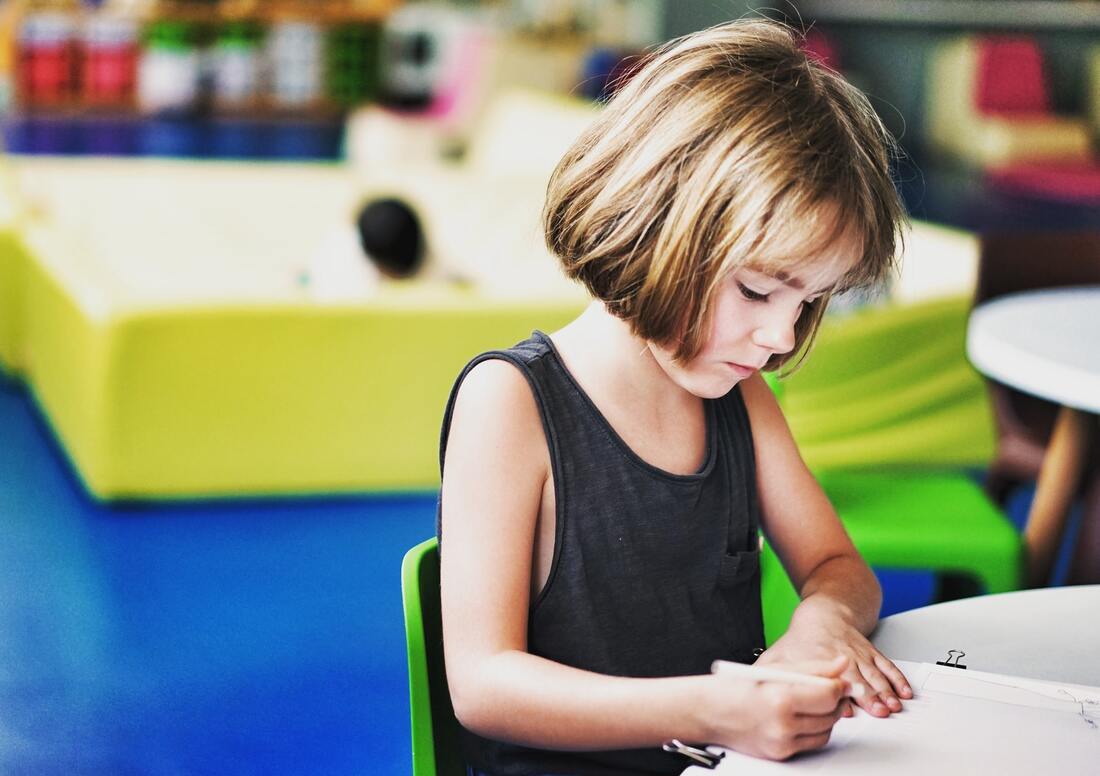


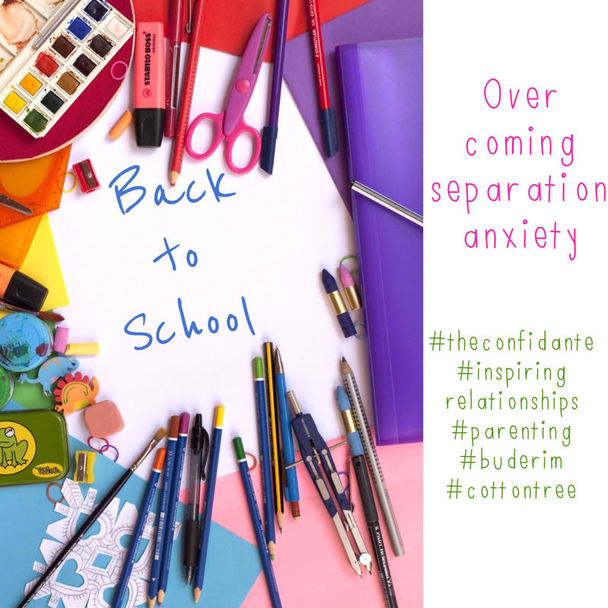
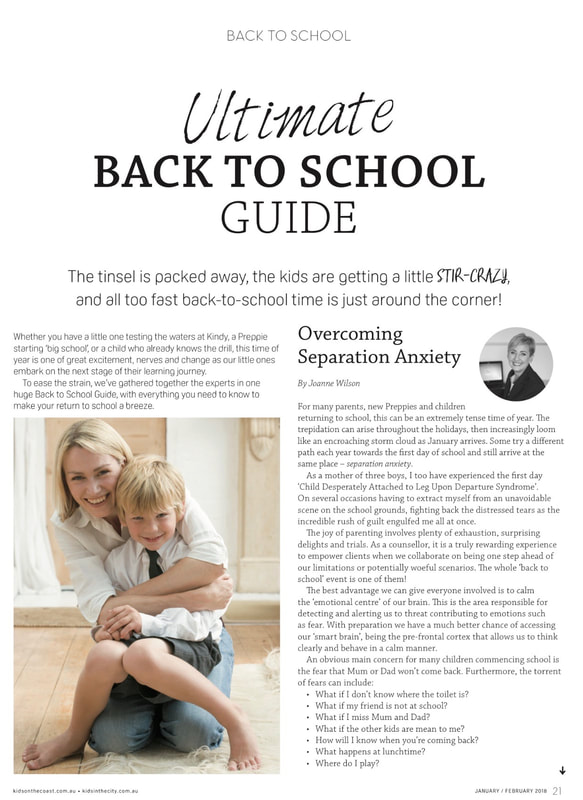
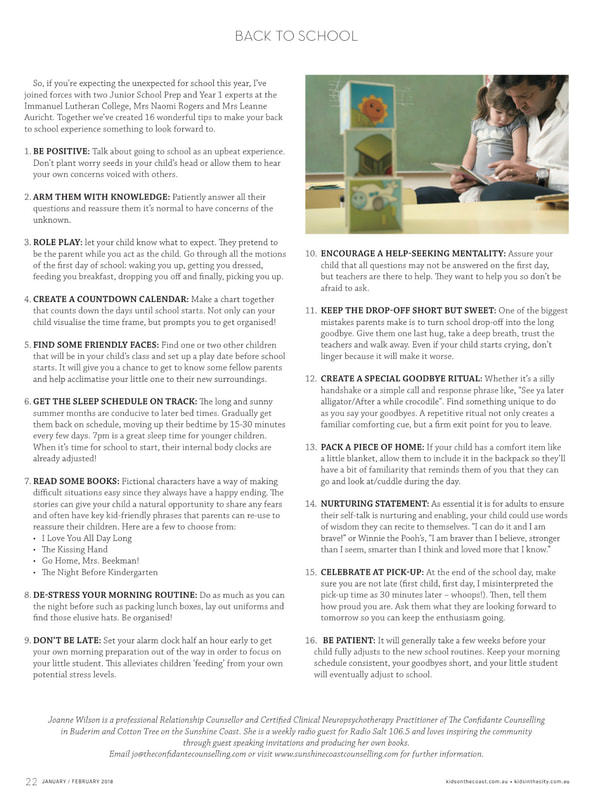
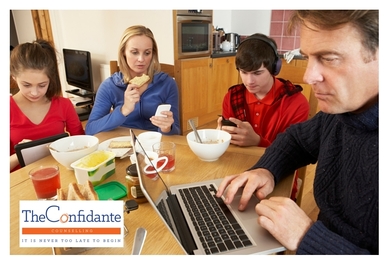
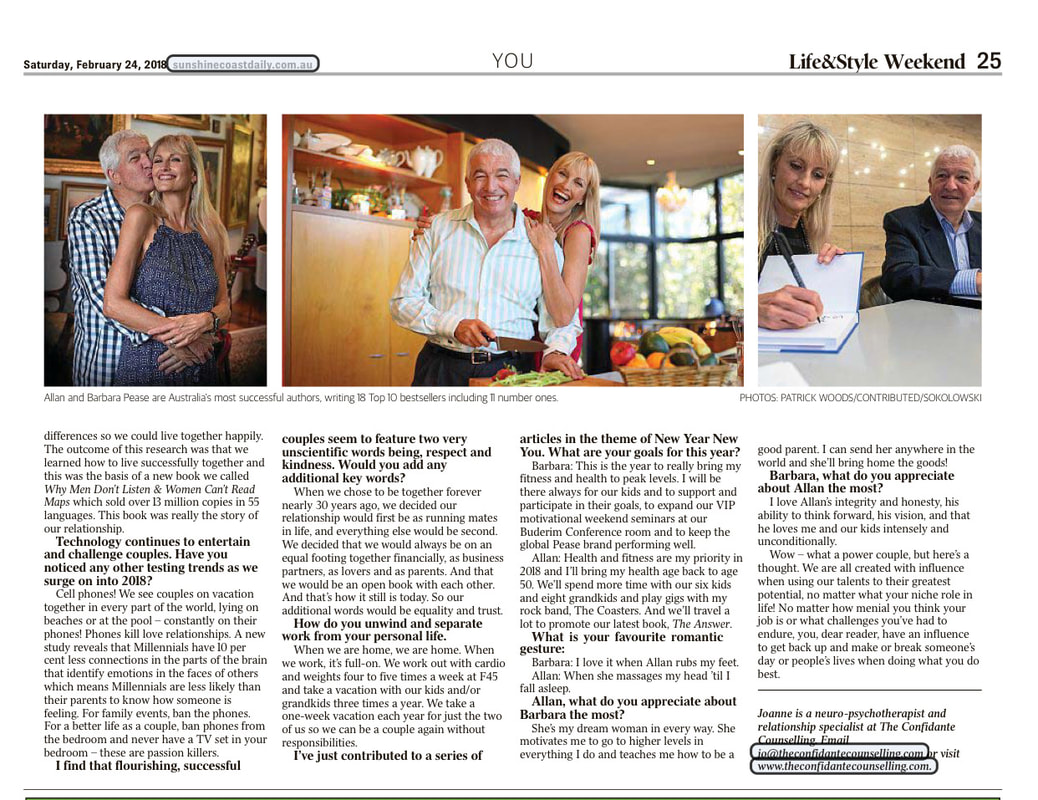
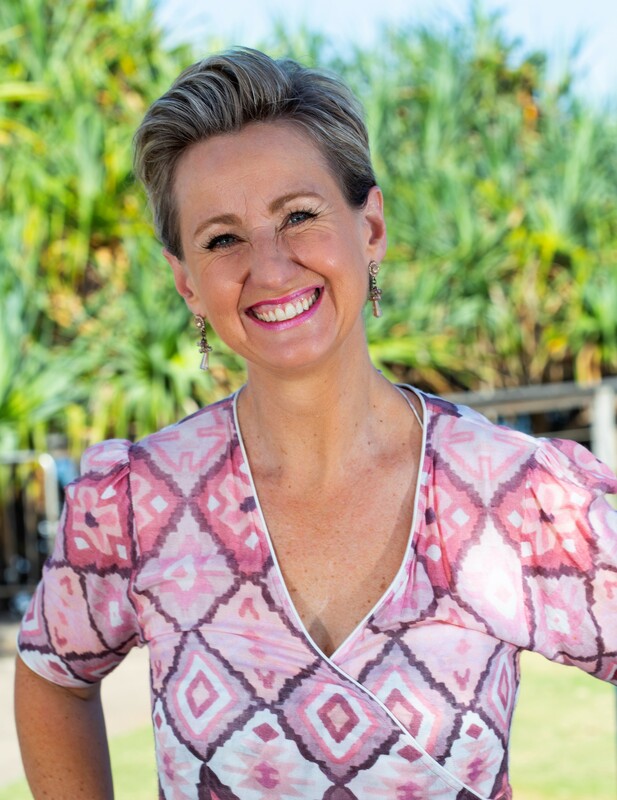
 RSS Feed
RSS Feed









